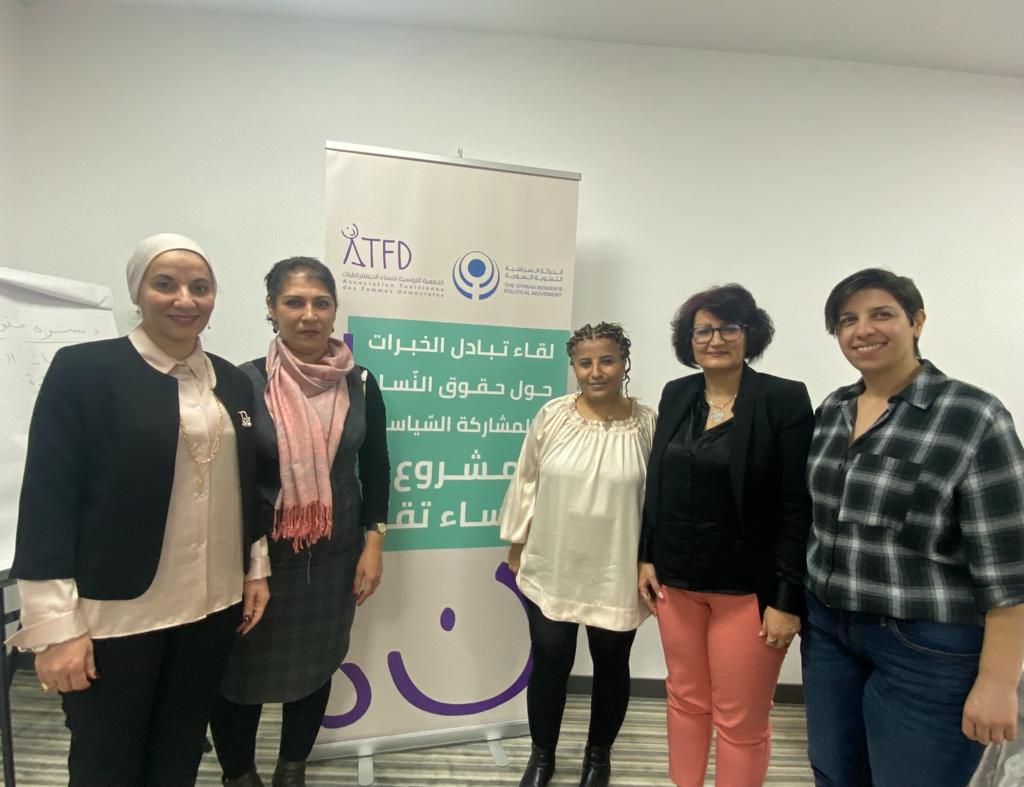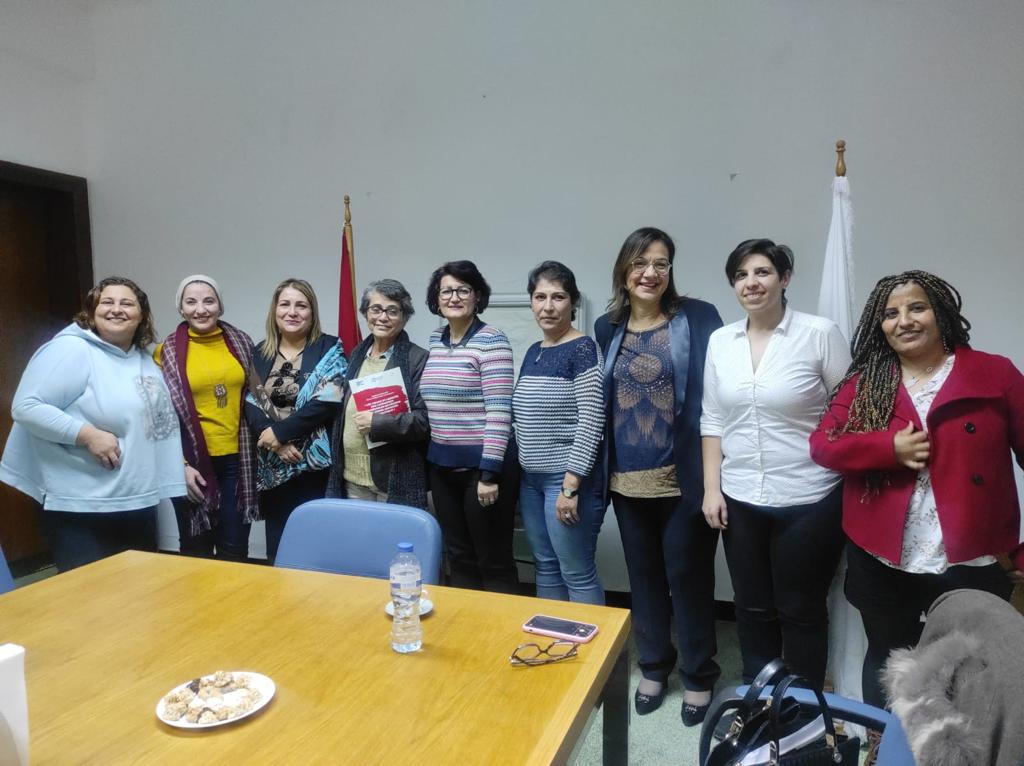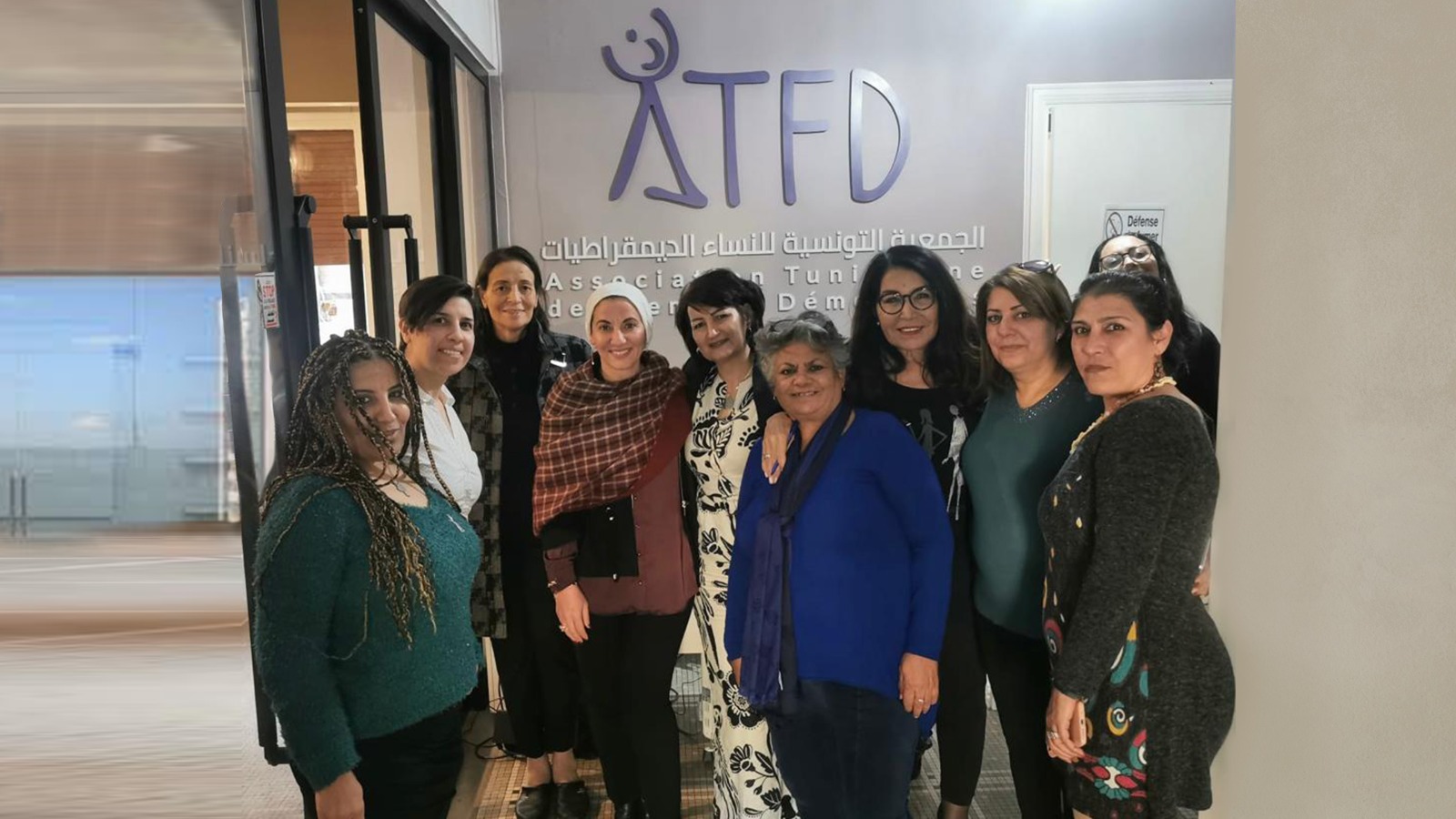The visit of the Syrian women’s political movement to Tunisia as part of the Women decide Program
- updated: December 13, 2022

Within Women decide Program for women; And within its participation in the 16-day campaign to eliminate violence against women; The Syrian Women’s Political Movement toured Tunisia from the fourth to the eighth of December 2022.
During the visit, the Syrian Women’s Political Movement was represented by members of the General Secretariat Khozama Darwish and Ruwaida Kanaan, as well as members Alice Mufarrej, coordinator of the Political Committee, Dima Ahmed, coordinator of the Organizing Committee, Mona Freij, member in the political committee.
During the visit, the meeting took place with a number of feminist organizations, institutions and personalities, namely: the Tunisian Association of Democratic Women, the Euro-Mediterranean Network, and the meeting also took place with the former representative, Bouchra Belhaj Hamida.

The visit aimed to exchange experiences and learn about the Tunisian experience in integrating the feminist perspective into laws, the constitution, and state policies. The importance of this meeting stems from the fact that Tunisia is considered a pioneering country in the field of women’s rights in the Arab world, thanks to the “Personal Status Code” that was put in place in 1956 by former President Habib Bourguiba, and it contains a law that prohibits polygamy, sets a course for judicial procedures for divorce, allows women to seek divorce, and stipulates Civil marriage, as Basic Law No. 58 of 2017 was issued in Tunisia related to the elimination of violence against women. Women’s participation in municipalities also increased, reaching 48% as a result of the electoral law that adopts horizontal and vertical parity.
During the visit, a number of topics were discussed, including the constitutionalization of women’s rights, pluralism and diversity in the feminist movement, how the Tunisian Association for Democratic Women was launched, the struggle of Tunisian women after the revolution and their struggle to preserve the gains, and the addition to it as “Law 58” that aims to eliminate all forms of Violence against women based on gender discrimination, in order to achieve equality and respect for human dignity.
The members of the Syrian Women’s Political Movement said that the visit was useful, on the one hand, to learn about the rich Tunisian experience, and on the other hand, to introduce Tunisian women to our experience in the Syrian women’s political movement, and the Syrian context in general. We made it clear during the visit that we as a movement have a position on all the forces of tyranny and dictatorship represented by the Syrian regime and all the forces of de facto control, and that we see as feminists that the solution in Syria is to reach a secular system that separates religion from the state, and that we as a feminist political movement are working to link politics with reality on the ground and from Feminist perspective.
The members of the Syrian Women’s Political Movement also stressed during the visit that the struggle of civil society and feminists to obtain rights needs at some stage a political will, so we must work on women’s access to decision-making centers to support feminist demands, and to achieve our continuity in working on all files related to the peace process from our perspective The feminist politician, and the pressure to activate the political will in order to reach a political solution and the process of democratization. Currently in Syria, if the most wonderful constitution that takes into account gender and laws to abolish all kinds of discrimination against women, there is no ground for their application under the current repressive regime.

Some of the personalities who were met during the visit expressed their opinions and impressions by saying:
- “We encourage women to be present in political parties to reach the House of Representatives, to support us in our struggle for women’s rights.” Nayla Zoghlamy, President of the Tunisian Association of Democratic Women
- “The key to feminist action is solidarity, solidarity with victims of violence, with feminist political activists, with victims of any form of discrimination.” Ahlam Boussrouel, General Secretary of the Tunisian Association of Democratic Women.
- “It is necessary to ensure that the constitution includes the principles of the independence of the judiciary and transitional justice, and it is necessary to network between feminist organizations and movements in the advocacy process, despite the differences between them.” Anwar Al-Mansari, founder of the Tala Solidarity Organization, contributed to writing the Anti-Violence Law of 2017.
- We created a dynamic to put the issue of women’s rights on the table and made it a central focus of our struggles, but until this moment we are still fighting for other gains to preserve what we got.” Zineb Loukil, Dialogue Project Coordinator at the Euro-Mediterranean Network.
